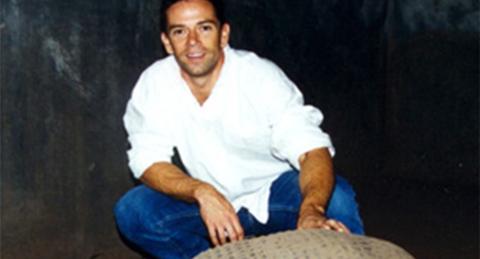
Nearly twenty years have passed since graduating from the University of New Hampshire (UNH) with a dual major in International Affairs (IA) and Political Science. Time allows for perspective, and it is easy for me to look back and see the undeniable influence that the IA program has had on my academic and professional career, as well as my personal life.
All of my academic and career-related experiences can be traced back to that first day I walked into Dr. Frank McCann’s office and declared an interest in the IA program. The “IA experience” opened up a new world of opportunities to a young man from a small mill town in southeastern New Hampshire. A world that might have gone unimagined were it not for one man’s vision of an academic program that would provide students with the knowledge, skills, and cultural understanding necessary to become informed and engaged global citizens.
Through my studies in international affairs, I acquired a strong interest in Brazilian history and Latin American development and was encouraged to pursue it. I had my first opportunity to do just that through an IA semester abroad program at the Instituto Brasil-Estados Unidos (IBEU) in Rio de Janeiro. I was profoundly impacted by my first cultural immersion experience, and was determined to pursue a career in Latin America.
Upon graduation of UNH in 1988, I moved to New Orleans and began graduate work at Tulane University’s Stone Center for Latin American Studies. The interdisciplinary nature of this doctoral program complemented my training at UNH and allowed me to further explore my academic interests.
After completing my Masters Degree in Latin American Studies, I traveled to South America to conduct a Ph.D. feasibility study on issues of economic development and conservation in the Brazilian Amazon. That short research trip proved to be a turning point for my academic and professional career, as it helped focus my growing interest in the relationship between economic development and wildlife conservation.
My interests further intersected when I was offered the position of Executive Director at the Zoo Conservation Outreach Group (ZCOG), a wildlife conservation organization headquartered at the Audubon Zoo in New Orleans. ZCOG fosters conservation partnerships among zoos, aquariums, and conservation organizations in Latin America. My role as Director involves developing programs and coordinating the transfer of training, information, and technology to Latin American colleagues. As a result, I travel extensively throughout the region in an effort to assess conservation priorities, build institutional partnerships, and facilitate collaborative international programs.
I have had the opportunity to visit some of the most remote and biologically diverse regions in Latin America, from the lowland tropical forests of Central America and the Amazon to the windswept plains of Patagonia. In these unique landscapes, I have had the privilege of collaborating with skilled scientists and conservation professionals, experiencing regional cultures, and directly working with endangered species such as jaguars, Andean condors, and Giant armadillos. These experiences have shaped my personal as well as professional life.
My Portuguese and Spanish language skills, and interdisciplinary knowledge of the region, have proven invaluable in all of my professional endeavors. The type of academic training fostered by UNH’s IA program has provided me the necessary background to understand the larger historical, political, and socio-economic issues that shape current conservation and development debates in Latin America. This has enabled me to become more critically engaged in the work that I do, and never complacent about the world in which we live.
I extend my most sincere gratitude to all of those, past and present, involved with the IA program. You made Brazil, Latin America, and the world accessible to those of us who were lucky enough to share your vision. I hope that in the course of my life I am able to pass a little of that on.